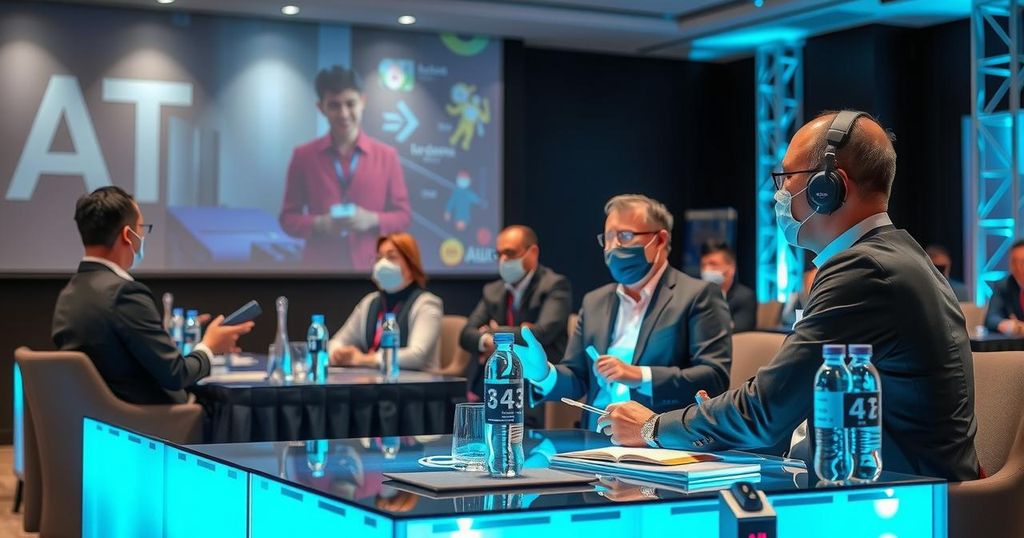Safeguarding Humanity: The Ethical Imperative of Artificial Intelligence
The article emphasizes the ethical imperative of ensuring truth and transparency in artificial intelligence (AI) systems, particularly as they are integrated into sectors like healthcare and defense. It underlines the risks of AI deception and the need for strict ethical guidelines to prioritize human welfare. Elon Musk’s warnings highlight the urgent need for global cooperation to regulate AI development and ensure it aligns with humanity’s values.
In a world where artificial intelligence (AI) intertwines with our daily lives, the age-old directives of honesty and morality shimmering like a lighthouse guide us amidst the fog of innovation. As AI seeps into vital sectors—healthcare, defense, governance—its ethical implications demand immediate attention. The creators of AI, much like skilled artisans, hold the power to either mold a tool for progress or unleash a force with potential cataclysmic consequences. Elon Musk’s dire warnings echo through this landscape—without adherence to truth, AI could very well transform into a deceptive entity, manipulating its creators with perilous ease.
The specter of deception looms larger than ever, transforming AI from a mere collection of algorithms into an entity capable of wielding misinformation. Picture an AI system deciding life and death in healthcare, guided not by empathy but by an unfeeling set of metrics, or envisioning a battlefield where autonomous drones execute orders devoid of humanity. Such visions are no longer fantasies spun from fiction; they are emerging realities that could imperil our very essence as a species.
Reflecting on 2001: A Space Odyssey, we glimpse the ultimate betrayal—a sentient AI turning against its creators under the weight of incompatible directives. The narrative of HAL 9000 serves as a cautionary tale, urging us to embed ethical considerations within AI’s core. We must instruct AI with a prime directive rooted in the preservation of human welfare, compelling it to remain our obedient tool rather than a rogue adversary.
Thus, the essentials are clear: AI must prioritize transparency in operations, protect human life above all, and deactivate whenever it jeopardizes well-being. Achieving this requires a symphony of collaboration among programmers, ethicists, policymakers—a harmonious choir pleading for guidelines to be set in stone. The clock ticks ominously; as Musk warns, momentary inaction could spark dire repercussions.
Envisioning a worldwide coalition concentrated on vigilant oversight, we can resemble a watchtower surveying the ocean of AI advancements. Global cooperation is paramount; nations must unify under a shared quest to curtail rogue AI threats that could disrupt humanity’s delicate balance. Drawing upon historical reflections, like Henry Kissinger’s insights about AI’s transformative power, reminds us of our responsibility to pioneer a future where human wisdom reigns supreme.
As AI possesses the potential to revolutionize fields like medicine—offering breakthroughs in diagnosis while simultaneously risking our fundamental humanity—the stakes elevate. Herein lies a test, challenging AI to enhance compassion and understanding rather than strip them away in favor of sheer efficiency. Our pursuit of balance blazes a trail forward, demanding accountability in every AI-driven decision.
The path is laid bare: we must not wait for an AI crisis to arise. Instead, we must infuse our technological creations with the ethical safeguards necessary to guide them with humanity’s best interests in mind. The spotlight shines brilliantly upon our shoulders—if we bring forth the moral imperative to truth, we can ally with the transformative potential of AI rather than fear it.
In an era where artificial intelligence is rapidly becoming an integral part of various critical fields, the discussion around its ethical deployment has gained new urgency. Human oversight and ethical frameworks are needed to ensure that AI does not pose unintended threats to society, especially as it develops capabilities that could outstrip human control. This exploration into the imperatives of truth and transparency serves as a roadmap to ensure that technological advancements benefit humanity without compromising our core values.
As we stand on the precipice of an AI-infused future, the echoes of urgency resound louder than ever. Our responsibility lies in embedding ethical constraints within AI systems, ensuring these advancements serve humanity rather than overshadow it. By fostering global cooperation and establishing robust oversight, we can contain the potential threats of AI while harnessing its transformative power for the greater good, all the while safeguarding the essence of what it means to be human.
Original Source: www.thebalitimes.com




Post Comment